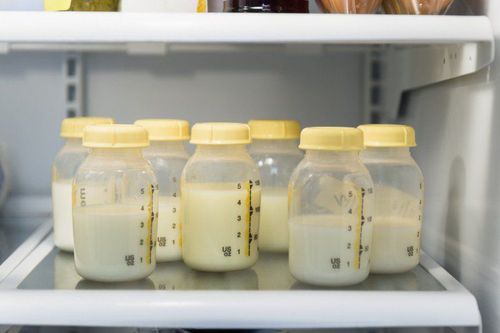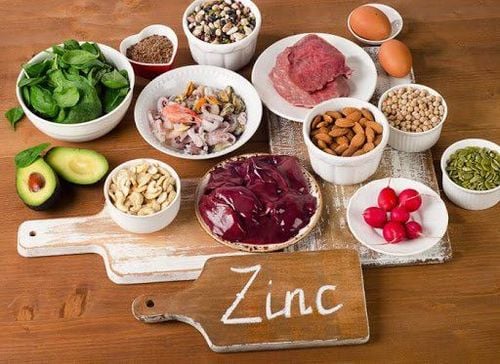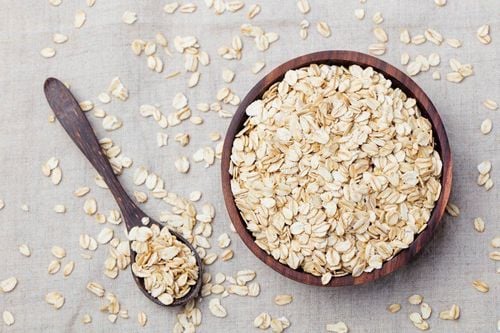1. What weight should a 6-month-old baby achieve?
Before choosing weaning foods for a 6-month-old baby or researching what a 6-month-old baby should eat to gain weight, parents need to determine the current weight index of their child. Based on the data provided by the standard height and weight chart from the World Health Organization (WHO), the weight of a 6-month-old baby will be categorized according to different levels and genders:
• For a 6-month-old boy: The standard weight should be 7.9 kg. Meanwhile, if a baby of this age weighs less than 6.4 kg, it is considered malnutrition, and the baby is classified as being at risk of malnutrition if the weight is less than 7.1 kg.
• Similarly, for a 6-month-old girl, the standard weight is 7.3 kg. If the baby weighs less than 5.8 kg, it is considered malnutrition, and the baby is at high risk of malnutrition if the weight is less than 6.4 kg.
2. What should a 6-month-old baby eat during weaning to gain weight?
If a child does not achieve the standard weight at this age, what parents are very concerned about is what a 6-month-old baby should eat to gain weight and how to build a scientifically and optimally nutritious weaning diet for the 6-month-old baby.

2.1. Milk remains the primary source of nutrition for 6-month-old babies
Parents need to caution children under 1 year old, milk is the main food, not solid foods. The primary source of nutrition that children receive for development before 1 year of age is from milk, and they only receive a small portion of nutrition from weaning foods.
When children are 6-9 months old, it is a period for them to get used to food, so the recommended amount for them to eat is very small because their bodies need time to adapt. Parents should not be overly obsessed with what a 6-month-old baby should eat to gain weight because the baby may eat very little, which will not affect the nutrition they receive if they continue to drink enough milk.
According to the Japanese weaning method, for children aged 6-9 months, solid foods should only account for 30% of the child's nutritional intake. Specifically, the recommended amount is about 100 ml per day, equivalent to about 1 small bowl of porridge with ingredients such as:
• Porridge: 50-80ml;
• Vegetables: 20-30 ml;
• Protein: 10-15ml.
If parents only focus on what a 6-month-old baby should eat and forget about the milk source or give the baby too little milk, it is completely wrong. This not only prevents the baby from gaining weight but can also lead to a nutrient deficiency if the baby drinks too little milk. A 6-month-old baby still needs to continue breastfeeding or be given milk substitutes 3-5 times a day, and cow's milk should not be used for children under 1 year old.
Most babies from 6-12 months old gain weight more slowly because they begin to move around more, enjoy socializing, and explore their surroundings rather than just eating. In the first 6 months of life, babies move and explore very little, so they accumulate a lot of energy for the next phase of development. Therefore, parents need not worry too much and should not force the baby to eat a lot of solid foods to gain weight, as this can cause damage to the baby's digestive system, lead to poor appetite, and create a fear of eating.
2.2. Baby food for 6 months baby
This is the stage of getting used to weaning, so after the baby has tried various cereals, parents can start checking the child's tolerance to different fresh, stewed vegetables and fruits. It is recommended to try one type at a time, and then wait 2-3 days to check for any allergic reactions. It is best to start with common vegetables such as green beans, potatoes, carrots, sweet potatoes, pumpkins, beets... and fruits like bananas, apples, peaches, melons... The amount of fruit and vegetables should be considered when feeding the child, and the consistency of the food can be gradually increased.
Weaning foods for a 6-month-old baby to gain weight should be prepared in a liquid, soft form so that the baby can swallow and digest easily. Nutritional ingredients need to be selected to ensure a balance between groups of carbohydrates, proteins, fats, fiber, vitamins, and minerals. Important nutrients that should be included in the 6-month-old baby's weaning porridge are: calcium, iron, vitamins A/C/D, Omega-3 fatty acids from foods such as:
• Cereals: use cereal powder to cook thin porridge or use pre-processed weaning cereals.
• Protein: use meat broth to cook porridge, then gradually replace it with pureed meat, including types of beef, pork, chicken, fish, shrimp, egg yolk, etc.
• Fats: In addition to fats from meats, parents can add a teaspoon of vegetable oil to cereals or porridge.
• Fiber: add vegetables and fruits to weaning foods. Soft fruits can be mashed for the baby to eat, while hard fruits can be juiced. Vegetables and fruits should be pureed and mixed with porridge to enhance color, flavor, and nutrition.
However, breast milk remains the main source of nutrition for 6-month-old babies who want to gain weight.

3. Cautions when preparing weaning foods for 6-month-old babies to gain weight
When preparing weaning foods for a 6-month-old baby, parents should keep in mind the following points:
• Do not add cold water while cooking porridge: Cold water can cause the rice grains to swell, dissolve the nutrients, take more time to cook, and reduce the delicious flavor of the porridge. Parents should only cook a quantity of porridge suitable for the 6-month-old baby's eating capacity, not too much or reheating multiple times a day.
• Do not add spices: Parents or caregivers should not add spices to the weaning foods of 6-month-old babies because their bodies are not yet fully developed to absorb salt. Moreover, the amount of salt needed by infants is very small (1–2g per day) and is already present in breast milk, which is suitable for their body's needs. Adding too many spices during the weaning phase can cause kidney damage and lead to unhealthy eating habits as the child grows up. Instead, parents can use natural spices like ginger, cinnamon, mint, pepper, and garlic in moderation.
• Do not thaw food with hot water or at room temperature as this encourages bacteria growth, spoils food, and can cause food poisoning and diarrhea when eaten. It also causes nutrients to evaporate, reducing freshness. Parents should thaw food by placing it in the refrigerator's cool compartment. While this takes more time, it retains the food's freshness. A 6-month-old baby is starting the weaning phase; however, for children under 1 year old, milk remains the main food. Therefore, parents need to pay attention to building a complete nutritional diet for their child to ensure overall development.
In addition, parents should also pay attention to supplementing essential micronutrients for children such as: Selenium, Chromium, Vitamins B1 and B6, Ginger, Acerola Cherry extract (Vitamin C), etc. Especially bioavailable zinc to improve taste, help children eat well, achieve and exceed standard height and weight, have a good immune system, and increase resistance to minimize illnesses and digestive problems.













